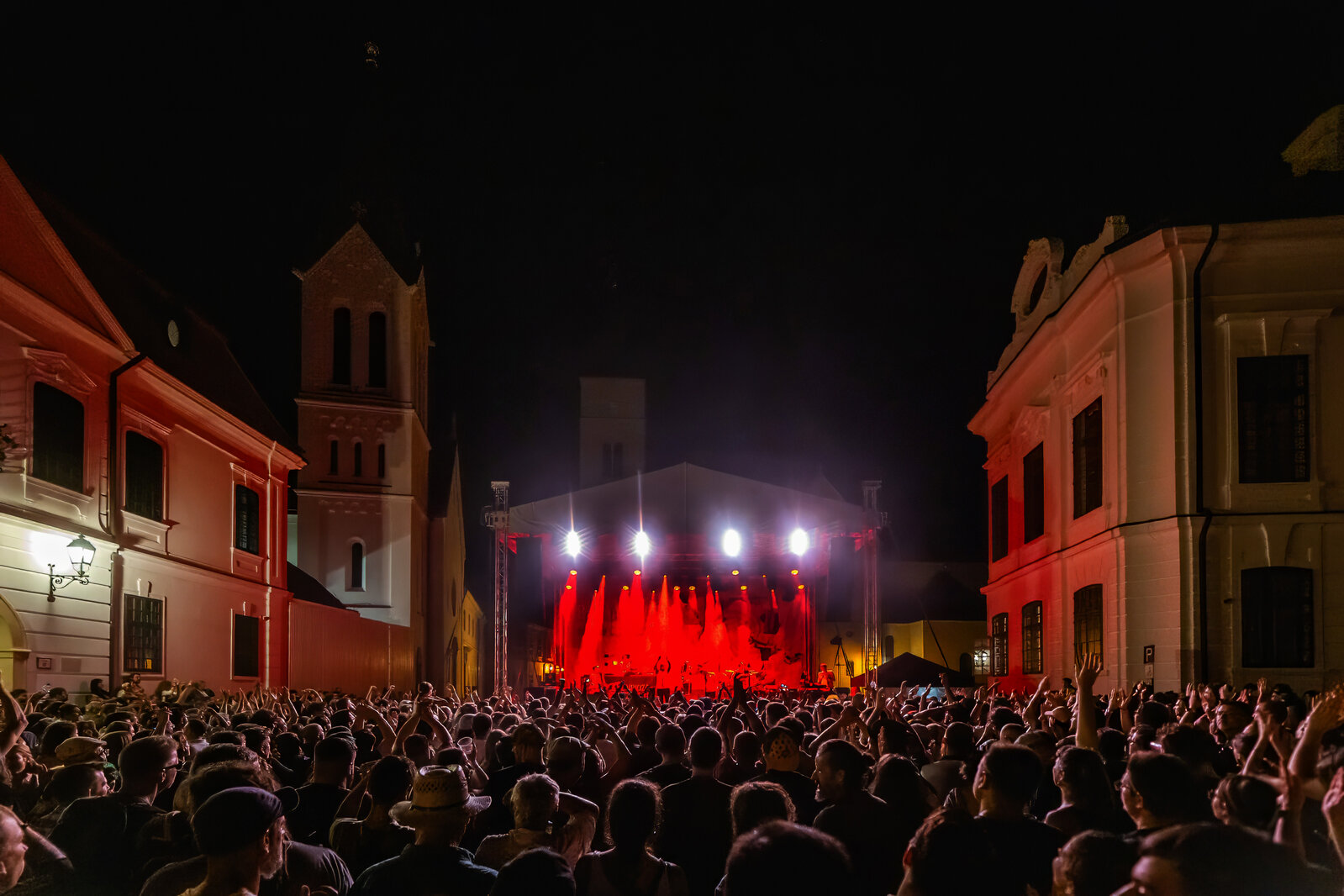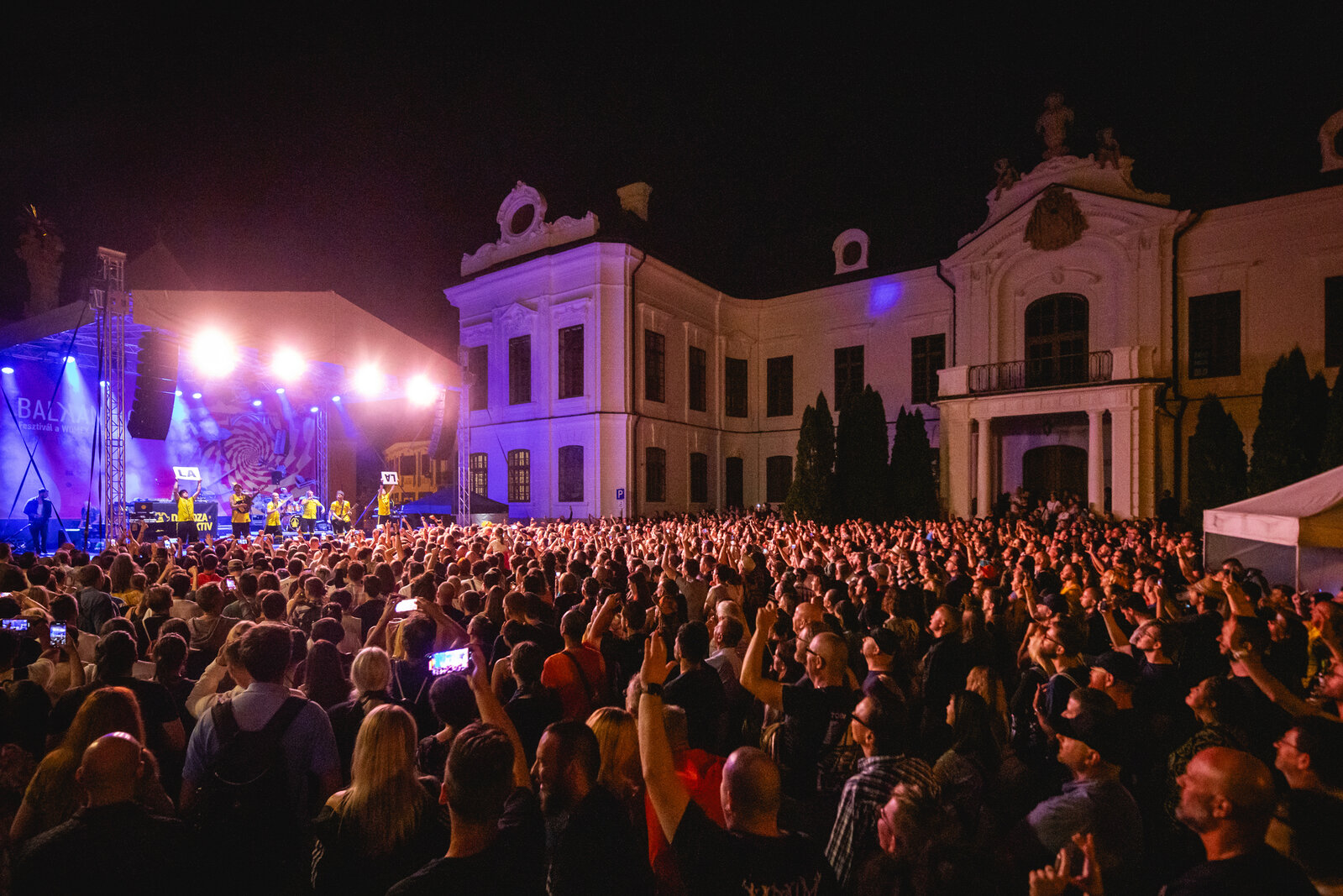BALKAN: MOST Celebration of Balkan music
For three days of September, more than 7,000 visitors danced, sang, and connected with the region's diverse music in the historic centre of Veszprém, for the BALKAN:MOST street festival: the most important world music programme of the European Capital of Culture for Veszprém-Balaton 2023. The ECoC event not only hosted Manu Chao, but also introduced the curious musical face of the Balkans in 32 open-air concerts, while professionals learned a lot about Balkan music and the music industry in a special professional event.

Sunshine, broken rhythms and baklava
At the opening ceremony, Friderika Mike, representing Veszprém-Balaton 2023 European Capital of Culture, said that Balkan music has a special place in the heart of the city and BALKAN:MOST will further colour the cultural profile of Veszprém.
The words of our director of programme development rang true for the thousands of visitors who bounced around the historic city centre to the beats of Bosnian ska-punk, a cappella folk songs, experimental electronica and, of course, world stars such as Marina Satti and Manu Chao. Over 3 days, 32 artists from 9 countries in the region presented a comprehensive musical overview of the Balkans, their diverse traditions and exciting present. Never before had such a Balkan party been held in our country, but there is a good chance that even the Balkan peninsula itself has never seen such a variety of styles in one musical event: everything from R'n'B to jazz; rock, sevdalinka, lăutărească and electronic trends were present and filled the streets of Veszprém.
A Balkan vibe in the city of street musicians
Veszprém has also become famous for its street music festival, so it's no surprise that the UNESCO City of Music welcomed the talented Balkan musicians with open arms. The spontaneity was palpable at every moment: At Daniele Sepe's concert, a Hungarian folk singer joined in on one of the songs, while Koszika had the audience laughing with a game of snaps. Dubioza put on a multi-generational sell-out party, Almir Hasanbegovic threw himself into the audience but didn't stop singing. Oratnitza got the audience so excited that hundreds of people kept dancing after the concert, turning the room into a spontaneous dance party.
On Saturday, Zarina Prvasevda's beautiful voice reached into the soul, backed by Marina Satti's sensual R'n'B, which was greeted with cheers from the crowd in the Old Town Square. The lucky ones also got to see revolutionary headliner Manu Chao in concert and were treated to an exclusive endorphin rush for several hours, led by the street musician turned ska partisan turned world star.
Building bridges through music
The musical celebration was accompanied by a three-day professional programme and a major conference with hundreds of participants from Europe, Hungary, and the Balkans. The festival is the culmination of the MOST project, a comprehensive four-year effort led by Hungary's Hangvető to integrate the region's artists and music into the European market through a programme based on four professional pillars.
"This is the most important event that shows the success of our project, like a final exam. Only in this case, the celebrations started during the exam," said Balázs Weyer, director of Hangvető and one of the creators of MOST, at the opening of the conference.
The project, co-funded by Creative Europe, has helped the careers of hundreds of music industry professionals, including 32 bands, 100 young managers and 60 festivals, through training, networking, mentoring, internships, performance opportunities and financial support. Their journey was celebrated at the BALKAN:MOST conference, paving the way for new collaborations, targeted networking events and concerts.

Accumulated networking capital
MOST gave us a big boost, new contacts. We learnt a lot about the music industry.
Christine Semba of WOMEX and Balázs Weyer, Programme Director of Hangvető, also emphasised the long-term impact of the project - the lasting relationships and commitment it has built.The importance of personal contacts and the need for continuity was emphasised by international expert Simon Broughton, editor of the leading music magazine Songlines, as well as Balkan experts such as Rok Kosir, manager and head of the Slovenian Music Information Centre, and Emir Fulurija, head of the newly opened Croatian Export Office. From the feedback received, it was clear that MOST has fulfilled its mission, but it is not over, as the Balkan music industry needs further attention and building.
New contacts and invitations were made in the picturesque venues of Veszprém, and the international professionals paid close attention to the emerging Balkan artists. As the host of a unique professional event of this kind, the city has also gained new visibility as an important cultural and musical centre, welcoming a cavalcade of styles and foreign professionals with openness.
